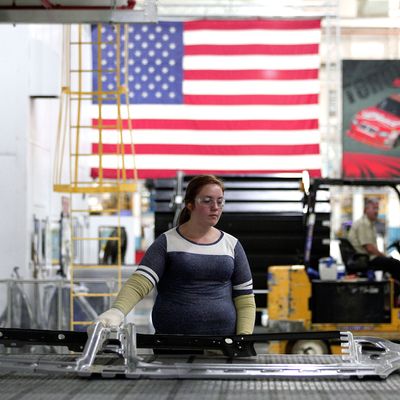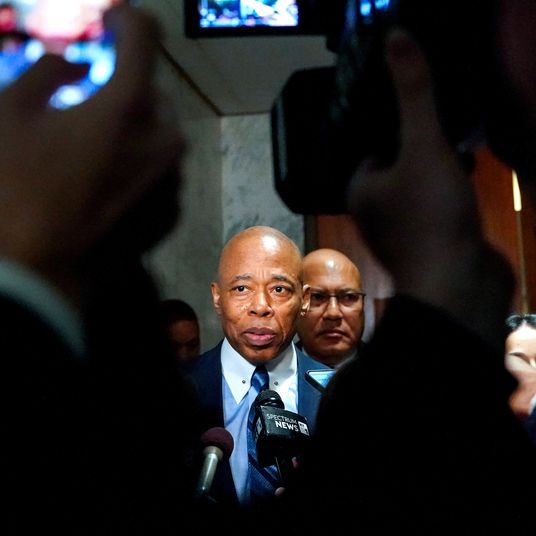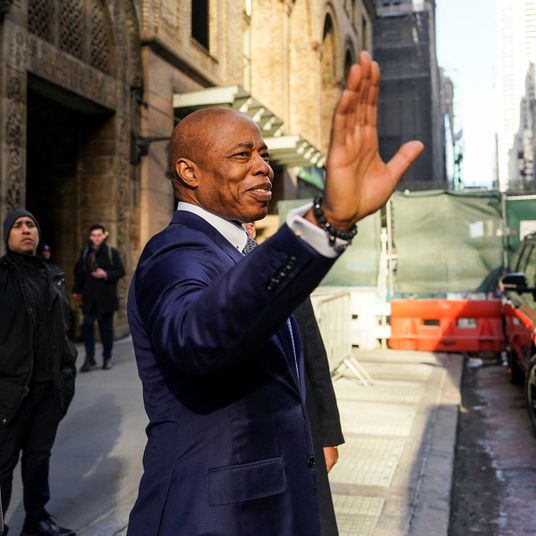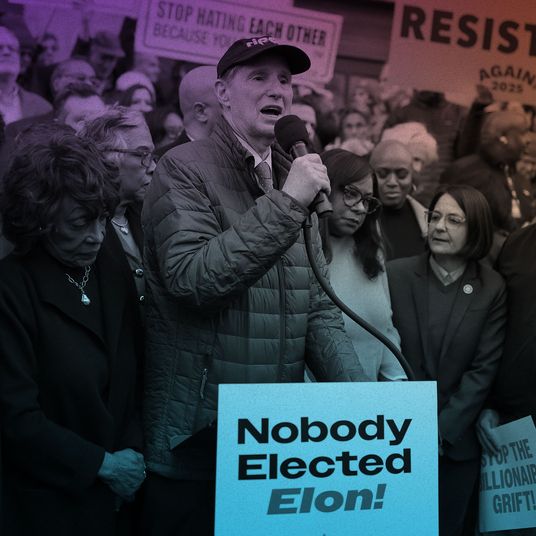
We don’t know just yet whether Trump’s $12 billion attempt to buy off farmers hurt by his trade war is going to prevent a midterm backlash. But we do know that Republicans in farm country aren’t happy about being put in the position of promoting a government-provided consolation prize for the money normally earned by exports, as articulated by Iowa governor Kim Reynolds (in a tough reelection fight this year):
As I’ve said all along, nobody wins in a trade war. We must continue to expand and open markets, protect the Renewable Fuel Standard and allow Iowa products to be sold across the globe. Iowa farmers are the most productive in the world and will always win when they have unrestricted access to markets. I will never stop fighting for Iowa families affected by this trade war.
But there’s a second front on which the Trump strategy for dealing with domestic backlash to his cherished trade war is causing big trouble: the industries hurt by Trump’s trade war who are wondering where their federal aid is. As the Washington Post reports, the un-bailed-out are getting restless:
“We’re all in this together — farmers and manufacturers. I think everyone needs relief from this and certainty, one way or another,” said Joseph Cohen, the founder of Snow Joe, a company that makes snowmobiles and other lawn and garden equipment in New Jersey and employs about 300 U.S. workers. Cohen warned the White House last week that the tariffs are harming his business and may force him to halt a major expansion he has been planning that would add 100 workers.
Even larger companies are starting to take a hit or raise prices on consumers, making the impact of the tariffs more visible to Americans across the country. Harley-Davidson is moving some production overseas because of the tariff fight with Europe, Whirlpool blamed losses on the tariffs, and Coca-Cola and Caterpillar say they are raising prices because of higher steel and aluminum costs.
Thus the trade war has a vast ripple effect, even on industries remote from the initial battleground, as prices rise and overseas markets dry up. But farm-style bailouts aren’t really in the cards, either, as the U.S. Chamber of Commerce has pointed out:
According to the business organization, the bill for extending a bailout to everyone screwed by the president’s ongoing trade wars would come in at $39 billion. The Chamber came up with the figure by comparing the amount of aid given to farmers with the amount of exports affected by the levies, and applying the ratio to other impacted groups. Some industries, like starch and glue, would only require small packages of around $43 million, while auto, motorcycle, and parts manufacturers would need something in the range of $7.6 billion.
And that’s just in terms of offsetting the initial, anticipated losses. If the trade war drags on, it could get really ugly as layoffs and factory closures spread. Trump’s conservative free-market allies in Congress and among opinion-leading elites already hate his trade war, but have long been accustomed to making an exception for politically pivotal farmers and the states whose economies depend on them. In addition, Trump’s agribusiness bailout was facilitated by the existence of New Deal–era income-stabilization programs that required no congressional action.
It’s been over 88 years since Republicans as a party bought into a full-fledged protectionist scheme: the Smoot-Hawley Tariff of 1930 that is widely thought to have deepened the Great Depression. So far there has been relatively little organized GOP resistance to Trump’s revanchist trade policies, despite considerable kvetching from those most directly affected, like Kim Reynolds. But Trump’s party is finding out that fighting a sustained trade war can be expensive, both fiscally and at the ballot box.






























